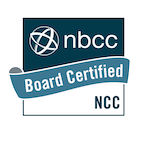There are few guarantees in life. One thing you can count on, however, is that you will be faced with conflict throughout your lifetime.
Most of us don’t look forward to conflict, and some of us try to avoid it at all costs. But there’s also an upside: conflict can be an opportunity for personal growth and development. Learning to engage with conflict in a healthy way can dramatically improve your quality of life. Let’s look at some strategies you can start using right away.
Focus on the Communication
 Good communication is the foundation for engaging in any type of healthy conflict. How you communicate can make or break a challenging situation.
Good communication is the foundation for engaging in any type of healthy conflict. How you communicate can make or break a challenging situation.
Express your feelings honestly. Whenever possible, use “I” statements to convey your message in a direct but disarming way. When you focus your words on your own experiences, it opens the door for a healthier conversation. Placing the focus on someone else can make them feel attacked, making a productive outcome less likely.
In all conflicts, try to be respectful. Avoid using an aggressive tone, yelling, name-calling, or making hurtful statements. Give the same energy that you’d like to receive in return.
Practice Active Listening
When we engage in conversation, it’s natural to start forming our response before the other person finishes their dialogue. If you’re in the middle of a conflict, however, it can be helpful to take a step back and really pay attention to what the other person is saying.
Allow them to finish their thought in its entirety. Take a moment to gather your thoughts. Then you can give your considered response. Active listening not only provides validation to the other person and shows respect, but it also reduces misunderstandings.
Identify the True Issues
Be careful not to make assumptions about the other side of the conflict or the issue itself without careful consideration. Take the time to identify what is causing a disagreement before moving forward in finding a resolution.
Once you understand the true issue, stay focused on that and that alone. Don’t stray to other issues or past issues that don’t belong in the present conversation. If you find yourself struggling to identify the issue, don’t be afraid to ask clarifying questions. Clarity is key to effective outcomes.
Brainstorm a Solution Together
When faced with conflict, it can be easy to turn the situation into “me versus them.” Instead of taking opposite sides of the fence, try coming together to find a solution. Working together will increase the likelihood of finding a compromise that meets everyone’s needs.
Coming to a solution may not be easy or instant, so prepare for a marathon rather than a sprint. If you notice either side getting too heated to be productive, take a step back. Once you’re calm and collected, you can return to the conversation.
Be Willing to Make Compromises
Humans can be naturally competitive, but winning isn’t everything. When a strong desire to “win” makes its way into interpersonal conflicts, it often does more harm than good.
Avoid making winning the goal of conflict resolution. Instead, focus on being flexible. Be willing to make compromises for the sake of meeting everyone’s needs and moving past the conflict.
Build a Healthy Foundation
Conflict will continue to be a part of life. Having the skillset and foundation for healthy conflict management will pay off. It requires disagreeing at times and welcoming opposing viewpoints at others. Practicing empathy and good communication in these situations will strengthen your foundation for dealing with conflict in healthy ways.
Work with a Therapist
Communication is a skill that requires practice and fine-tuning over time. If you’re struggling with conflict management or healthy communication skills, we’re here to help. Schedule your first appointment for couples therapy with us to get started.


